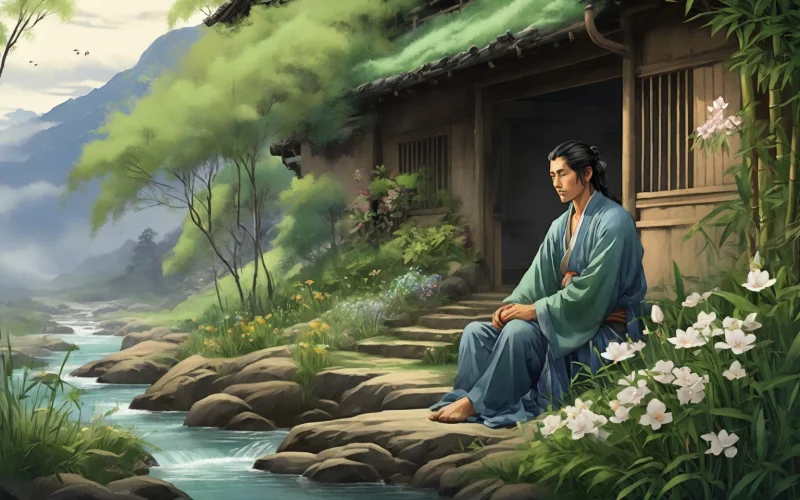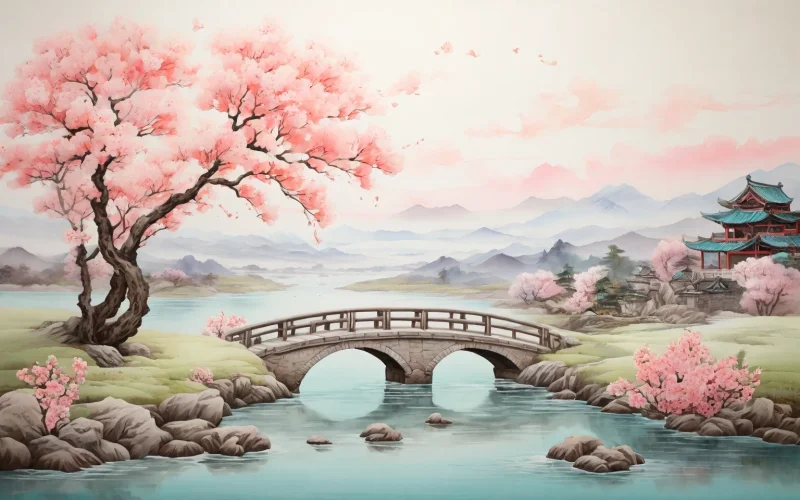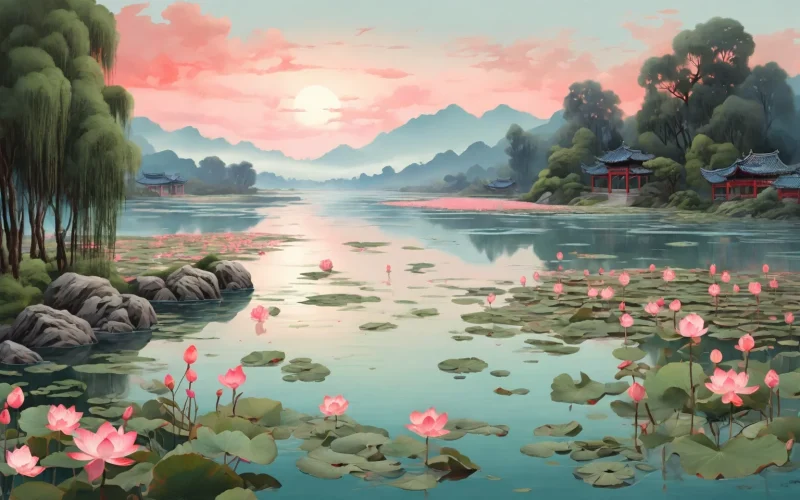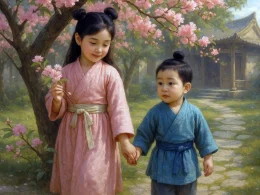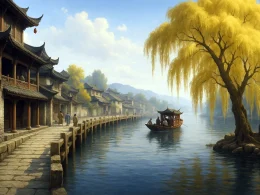Ravine water hushes through bamboo veins,
West-bamboo flora stages spring's soft drama.
Thatched eaves face me all day—
A bird's withheld cry carves deeper hush.
Original Poem
「钟山即事」
王安石
涧水无声绕竹流,竹西花草弄春柔。
茅檐相对坐终日,一鸟不鸣山更幽。
Interpretation
Composed around 1076 after Wang Anshi's resignation as chancellor and retirement in Jiangning, this poem emerges from a period of political reversal. Having twice ascended to and descended from power, with his reform efforts thwarted and political adversaries surrounding him, the poet withdrew to Zhongshan Mountain (also known as Jiangshan or Purple Mountain), a scenic area near Jinling. There he built a study, associated with mountain monks, and lived a life of quiet simplicity. His late-period poetry often depicts mountain landscapes with serene and ethereal imagery, expressing transcendental detachment while subtly revealing cool observation and contemplation of reality. This poem stands as a representative work from this phase of his life.
First Couplet: "涧水无声绕竹流,竹西花草弄春柔。"
Jiàn shuǐ wú shēng rào zhú liú, zhú xī huā cǎo nòng chūn róu.
Streamwater flows soundless through bamboos,
west of the grove, flowers tease spring's tenderness.
This couplet captures Zhongshan Mountain's tranquil spring morning. "Soundless" (无声) and "flows through" (绕) depict the stream's quiet, meandering beauty—its silent yet persistent movement through the bamboo forest. "Tease spring's tenderness" (弄春柔) personifies nature, endowing plants with playful agency as they revel in spring's softness. The verb "tease" (弄) animates the scene, suggesting both nature's self-delight and the poet's projection of emotional resonance onto the landscape. Here Wang constructs a world simultaneously dynamic and profoundly still, mirroring his inner pursuit of quietude and spiritual distance.
Second Couplet: "茅檐相对坐终日,一鸟不鸣山更幽。"
Máo yán xiāng duì zuò zhōng rì, yī niǎo bù míng shān gèng yōu.
Under my thatched eaves I sit facing mountains all day—
not one bird calls, the hills grow deeper in hush.
This couplet portrays the poet's post-retirement existence. "Sit all day" (坐终日) epitomizes absolute stillness and leisure, reflecting both environment and mental state. The closing line echoes but transforms a classic technique: where Wang Ji's Entering Ruoye Stream used cicadas' chirping to emphasize forest quiet ("more stillness emerges through cicada noise"), Wang Anshi directly states absolute silence through "not one bird calls." Though rhetorically plainer, this approach aligns with his late-style austerity. The avian silence also metaphorically suggests absence of slander or worldly affairs, conveying his relief at escaping political strife. Yet the mountains' intensified hush hints that true detachment remains incomplete—the recluse's mind hasn't fully transcended worldly concerns.
Holistic Appreciation
This compact mountain idyll, though merely four lines, paints an ethereal portrait of reclusive life. The first couplet's "stream through bamboos" and "flowers teasing spring" sketch nature's delicate vitality, while the second's "sitting in silence" and "birdless hush" deepen the solitude. Surface tranquility belies underlying political awareness—the poem balances love for nature with post-retirement equanimity, masking profound reflection on past turmoil beneath apparent peace. Through this duality, Wang asserts his unbroken spirit: physically withdrawn but intellectually undefeated, secluded yet spiritually undimmed.
Artistic Merits
- Stillness-in-motion technique:
While depicting flowing streams and teasing flowers, the poem maintains pervasive calm, achieving "movement within stillness" that mirrors the poet's psyche. - Precision with philosophical resonance:
Words like "soundless," "flows through," "tease," and "hush" blend pictorial beauty with metaphysical depth. "Teasing tenderness" brilliantly animates nature; "hills grow deeper" intensifies atmosphere through understatement. - Direct presentation with implicit meaning:
Rejecting traditional "sound-against-silence" contrasts, Wang employs forthright description that appears simple yet resonates profoundly—a "sparse-but-not-shallow" style characteristic of his late period. - Scene-emotion fusion with political subtext:
The poem's serene landscape embodies political withdrawal, serving as both authentic emotional expression and symbolic statement. Behind the "silence" lies resistance to worldly clamor and rational detachment.
Insights
Transcending mere nature poetry, this work crystallizes Wang Anshi's late-life political sentiments and spiritual condition. It teaches that maintaining clarity and calm amid life's turbulence constitutes both wisdom and strength. The mountain's silence represents not just physical seclusion but the poet's inner world—a state beyond sorrow or joy, unyielding yet serene, embodying true composure forged through tribulation. For contemporary readers, it offers a model for finding stability and determination within life's chaos, proving that mental peace needn't require complete worldly disengagement.
About the Poet
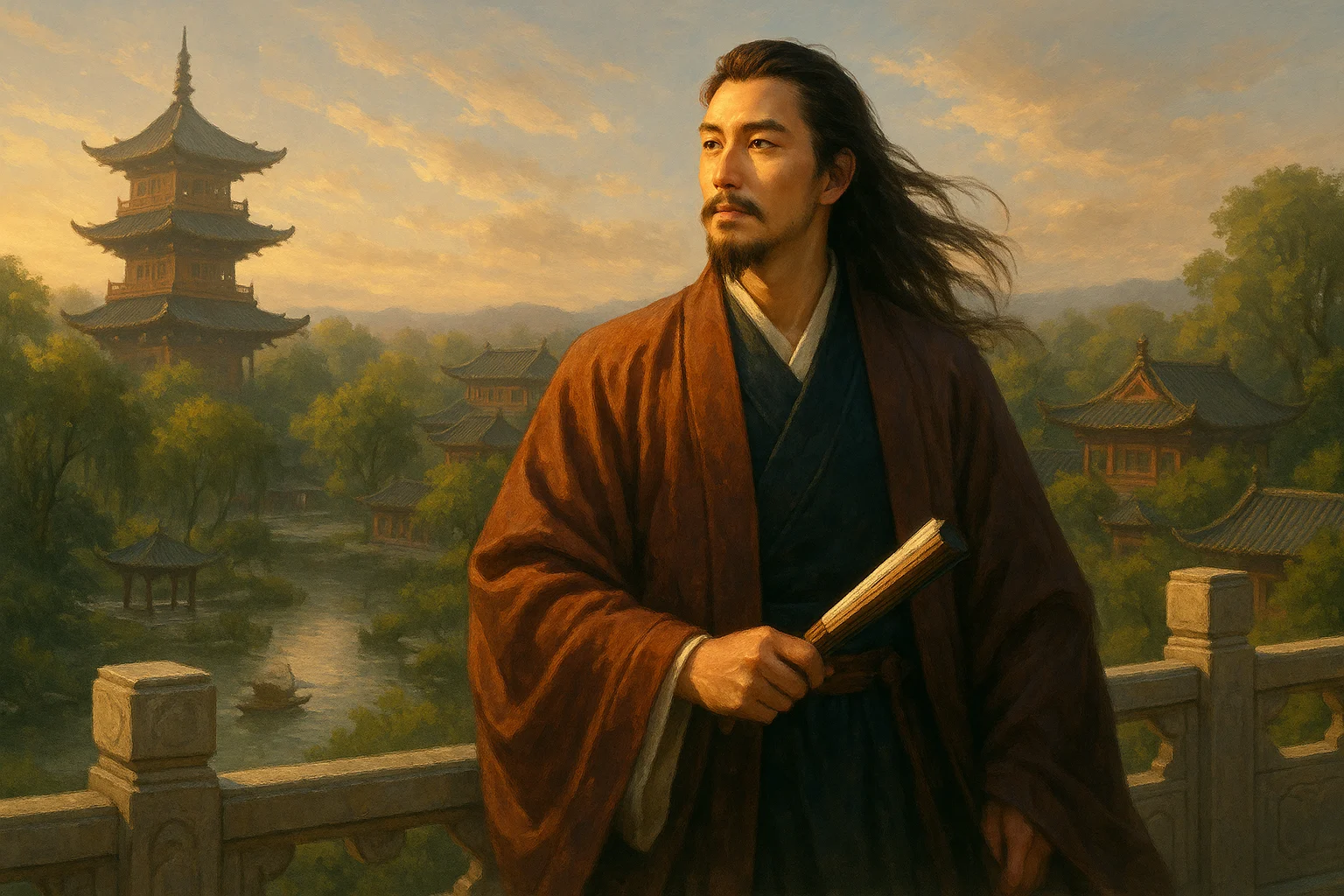
Wang Anshi (王安石 1021 - 1086), a native of Linchuan in Jiangxi, was an outstanding statesman, writer, and thinker of the Northern Song Dynasty, counted among the "Eight Great Prose Masters of the Tang and Song Dynasties." His poetic achievements were particularly profound—his early works, filled with heroic language, revealed the ambition of a reformer. Though his ci poetry was few in number, it pioneered new realms of historical reflection. His poetry and prose combined intellectual depth with artistic value, and the over 1,500 works preserved in The Collected Works of Linchuan stand as a monumental testament to literary innovation in Song Dynasty literature.






